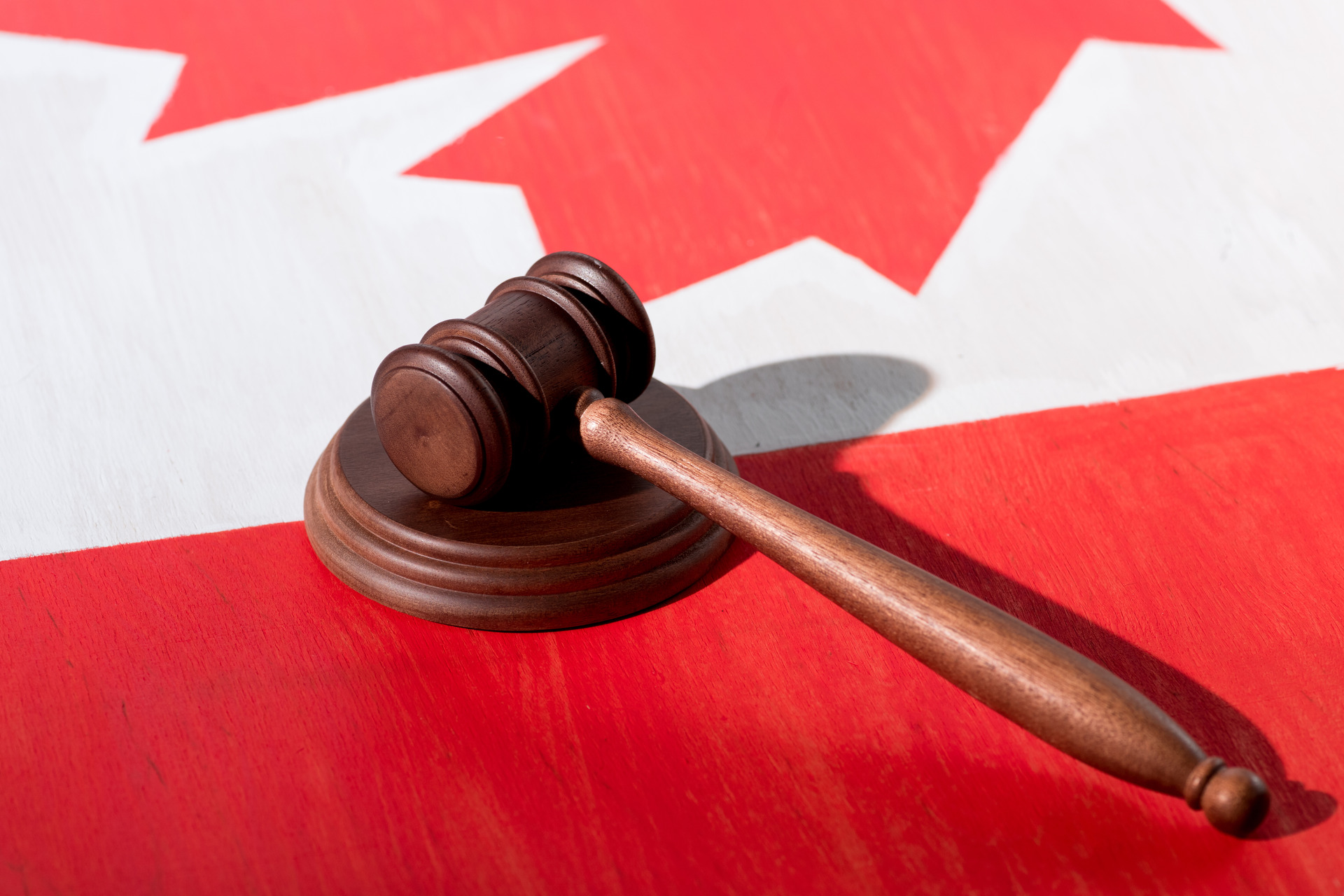
The main difference between a permanent resident and a citizen in Canada is the scope of rights, responsibilities, and privileges granted under Canadian law. Citizenship provides individuals with a higher level of legal status, greater protections, and broader opportunities compared to permanent residency.
Below are the key areas of difference between permanent residents and citizens:
Looking for a competent immigration lawyer in Toronto? Contact our Kingwell Immigration Law today for personalized guidance on your permanent residency or citizenship journey.
A permanent resident in Canada is an individual granted the right to live and work in Canada indefinitely after immigrating from another country. They hold permanent resident status under Canadian law and enjoy many benefits, including access to healthcare and social services, but are not Canadian citizens.
Applying for permanent residency or Canadian citizenship involves distinct processes, and comprehending the steps is essential for success. Our team at Kingwell Immigration Law specializes in these applications, ensuring compliance with all legal requirements.
At Kingwell Immigration Law, we specialize in helping clients handle the complexities of Canadian immigration. Whether you’re applying for PR or citizenship, our immigration lawyer in Scarborough is here to help. Call us today to get started.
Recognizing the differences between permanent residency and Canadian citizenship is essential for anyone reviewing their Canadian immigration status. Below, we provide a detailed comparison to help you make informed decisions about your future.
Canadian citizens enjoy full rights and freedoms under the Canadian Charter of Rights and Freedoms. This includes the right to vote, run for office, and fully participate in Canada’s democratic processes.
Permanent residents, while protected under Canadian law, do not have voting rights or the ability to hold certain political positions.
Canadian citizens can travel freely with a Canadian passport, which allows visa-free or visa-on-arrival access to many countries, making it one of the most powerful travel documents in the world. Citizens face no restrictions on leaving and re-entering Canada.
Permanent residents must travel with a valid PR card or a Permanent Resident Travel Document (PRTD) and their passport from their country of citizenship. Unlike citizens, PRs must also meet residency requirements (living in Canada for at least two out of five years) to maintain their status, which may limit extended stays outside Canada.
Permanent residents must live in Canada for at least two out of every five years to maintain their status. Exceptions exist for time spent abroad while accompanying a Canadian citizen spouse, working for a Canadian business, or fulfilling a government assignment.
PR holders under provincial nominee programs are expected to reside in the nominating province. Failing to do so could lead to legal actions for misrepresentation of intent.
Canadian citizens, on the other hand, have no residency requirements and can live outside Canada indefinitely without affecting their citizenship.
Permanent residents can lose their status if they fail to meet residency obligations, commit serious crimes, or engage in actions that violate Canadian law. A formal process is required to revoke PR status.
While Canadian citizens cannot lose their citizenship under ordinary circumstances, naturalized citizens may face revocation if they obtained citizenship through fraud, misrepresentation, or if they are convicted of crimes like war crimes or terrorism. These rules do not apply to Canadian-born citizens, who retain their citizenship unless they voluntarily renounce it.
Additional reading: can Canadian citizenship be revoked
Canadian citizens have the exclusive right to vote, run for political office, and engage fully in Canada’s democratic processes. This distinction highlights one of the key differences between Canadian permanent residents and citizens.
While a Canadian permanent resident enjoys many rights, such as the ability to live and work in Canada, they cannot participate in elections or hold political positions. Becoming a citizen of Canada provides these privileges, making it an important consideration for those who wish to be more involved in shaping the country’s future.
Having immigration concerns? Let our immigration lawyer in Hamilton assist you with your immigration needs. From permanent residency applications to citizenship transitions, we’re here to make the process seamless. Reach out now for a consultation.
Certain public sector jobs, particularly those requiring high-security clearance, are available only to Canadian citizens. Permanent residents may face restrictions in accessing these roles, which limits some career opportunities.
Children born to Canadian citizens, even if born abroad, automatically acquire Canadian citizenship.
Permanent residents cannot pass their status to children born outside Canada. Instead, these children must apply for residency or citizenship separately.
Both PRs and Canadian citizens can sponsor family members to immigrate to Canada. However, citizens have broader sponsorship options, such as sponsoring parents and grandparents through specific programs.
PRs, on the other hand, may face more restrictions in eligibility and program availability. Realizing these differences is pivotal when planning family reunification.
Permanent residents must pay taxes on their worldwide income, reflecting their ties to Canada as residents. This obligation continues as long as PR status is maintained, irrespective of time spent abroad.
Citizens also share the responsibility of paying taxes, ensuring their contribution to Canada’s economic framework.

While both PRs and citizens enjoy access to Canada’s healthcare system and social benefits, certain programs, such as retirement benefits and employment insurance, may offer additional advantages to citizens with a longer history of contribution.
Although rare, Canadian citizens may be called upon to fulfill military service obligations, particularly in times of national emergency. This is not a requirement for permanent residents, underscoring one of the few additional responsibilities tied to citizenship.
Citizens and permanent residents are both protected under Canadian law, including the Charter of Rights and Freedoms. However, citizens have an additional layer of security, as they cannot lose their status except under exceptional circumstances.
While PRs share many benefits with citizens, such as access to free healthcare and protection under Canadian law, certain privileges are exclusive to citizens. These include the right to vote, obtain a Canadian passport, and participate fully in Canada’s political system.
Additional reading: benefits of Canadian citizenship
Canada allows dual citizenship, but this consideration applies only to Canadian citizens, not permanent residents. Permanent residents maintain the citizenship of their home country unless they choose to transition to Canadian citizenship.
Dual citizenship for citizens is particularly beneficial for those who wish to maintain business, cultural, or familial ties to their home country. However, it’s important to understand how dual citizenship may impact your legal obligations or rights in your country of origin.
At Kingwell Immigration Law, we guide you through every step of the process, from gathering documentation to preparing for the citizenship test. Contact us today for professional legal assistance tailored to your unique situation.
Choosing between Canadian permanent residency and citizenship requires considering both the benefits and potential drawbacks. Each status comes with unique rights, obligations, and challenges.
Pros:
Cons:
Pros:
Cons:
PR is ideal for individuals seeking long-term residence without renouncing their original nationality, while citizenship offers full rights and participation in Canadian society. Consider your travel needs, political involvement, and long-term residency plans when deciding.
Additional reading: naturalized citizen vs citizen
Deciding between Canadian Permanent Residency and Citizenship is a significant step, and we’re here to help you make the most beneficial choice for your future. At Kingwell Immigration Law, we provide personalized guidance to ensure you understand your rights, obligations, and pathways.
Contact us today to get started on your journey:
Whether you’re applying for PR, pursuing citizenship, or exploring your options, our proficient team is ready to assist you every step of the way.
No, a permanent resident is not a citizen. Permanent residents have the right to live, work, and study in Canada indefinitely but do not have full citizenship rights, such as voting or obtaining a Canadian passport. Citizenship requires meeting specific criteria and applying for naturalization.
There is no difference between a landed immigrant and a permanent resident in Canada. “Landed immigrant” is an older term previously used to describe individuals granted permanent residency. Today, the term “permanent resident” is used officially, but both refer to the same immigration status.
No, a permanent resident cannot get a Canadian passport. Only Canadian citizens are eligible to apply for a Canadian passport. Permanent residents must travel with a valid PR card or Permanent Resident Travel Document (PRTD) and their passport from their country of citizenship.